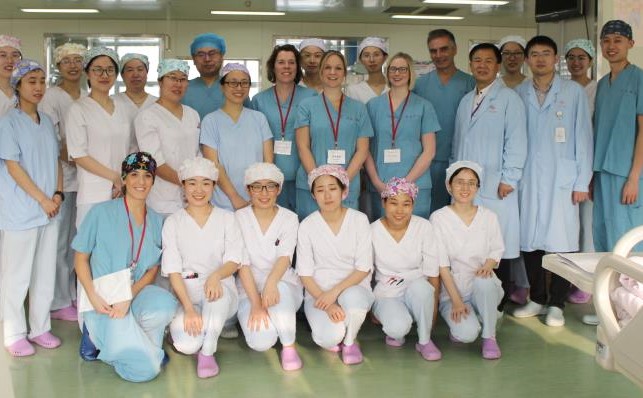Published in May 2019

The cardiac team of our newest partner Qingdao Women and Children’s Hospital (China) and their mentors from Alder Hey Children’s Hospital (England)
ConocoPhillips China renewed its funding for our partnerships with two hospitals in China. The subsidiary of the world’s largest independent E&P (exploration and production) company has been supporting our programs in China since 2013.
ConocoPhillips China provided another year of funding to TEDA International Cardiovascular Hospital located in the Binhai New Area of Tianjin on the east coast. The hospital has an active charitable program and conducts off-site screening camps to treat children from provinces and autonomous regions throughout the country. Children’s HeartLink’s partnership with TEDA began in 2017, together with The Hospital for Sick Children in Toronto, Canada.
The other hospital is our newest partner Qingdao Women and Children’s Hospital, one of the primary heart centers in Shandong Province, with a population of 100 million. Training is provided in partnership with our medical volunteer team from Alder Hey Children’s Hospital, one of the largest cardiac units in England. Their first full-team training visit to Qingdao Women and Children’s Hospital was in November 2018.
“This funding makes our work possible in heavily populated regions of China and helps increase the number of children treated as well as the complexity of surgeries available to these children,” says Children’s HeartLink Country Director Andreas Tsakistos.
Despite the economic growth China has experienced over the last decade, many parts of the country remain largely underdeveloped and struggle with poverty. Children with congenital heart disease face a shortage of pediatric specialists and uneven access to care. In many areas of this vast country, patients and their families must travel great distances to seek treatment. There are fewer than two cardiologists per 100,000 people in China, and even fewer that have specialized training in pediatrics.
